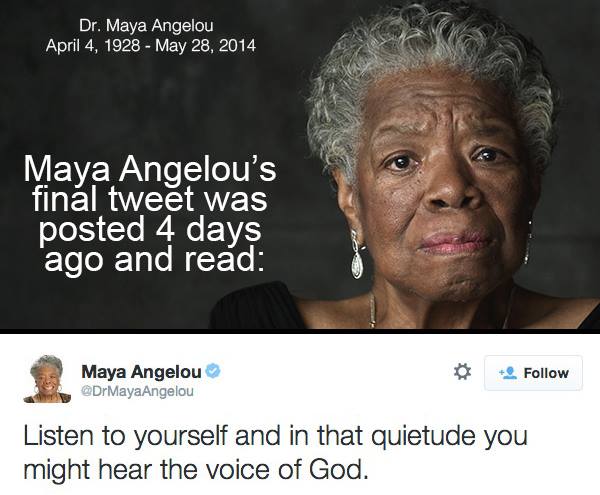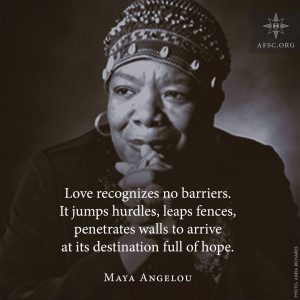I am struggling today, not because I am discouraged or disheartened but because I am challenged once again with the radical call of the gospel. And the centre of my struggle is the question Why do I think this is so radical, it is meant to be ordinary living for followers of Christ?
Live and love in the name of Jesus probably sums it up. Or as Jesus himself says Love the lord your God with all your heart and soul and mind and love your neighbour as yourself.
Why does that seem so radical to us? At the centre of our sinfulness is a turning from God and neighbour to self. Adam blamed Eve, Eve blamed the serpent. Neither of them wanted to take responsibility for their own actions. Self preservation triumphed over community good. And the result was isolation and alienation – from each other, from God and from God’s good creation.
This is something that I find I constantly need to be reminded of. It is so easy for all of us to fall into the sin of self centredness from which I often feel all other sins radiate. Jesus death and resurrection unleashes a totally new form of existence in which the giving of oneself in love takes us from the death of isolation to the true life of fellowship and community.
Reflecting on that this morning I wrote this prayer
Let us give up our lives today
in love for Go and neighbour.
Let us give up self centredness
and offer ourselves to the world.
Let us give up isolation
and join the fellowship of God’s family.
Let us share in the shaping of God’s world
laying down our lives in nurture and help for others.
I would love to hear your thoughts on this and reflections on What can you do today to move away from the isolation of self centredness to the otherness of love for God and neighbour?
Yesterday Maya Angelou died. I regret that I didn’t really know much about her until I started reading the quotes and tributes posted during the day. She was a remarkable but definitely unconventional woman whose life touched millions. Angelou became an author at the age of 41 when she wrote her memoir I Know Why the Cage Bird Sings, which was followed by various works, ranging from autobiographies to children’s books and song lyrics for a musical. “I’ll probably be writing when the Lord says, “Maya, Maya Angelou, it’s time,” Angelou told TIME in 2013.
Angelou became the first black and first female inaugural poet in 1993 for President Clinton and left behind a strong legacy as a teacher and civil rights activist.
A commanding figure at 6 ft. tall, she rose at 4 or 5 every morning and went to a bare room at a nearby motel to work, alone with a stack of legal pads, a Bible, a dictionary, a thesaurus, and a bottle of sherry. (read the entire tribute)
“What I would really like said about me is that I dared to love,” Angelou told an interviewer in 1985. “By love I mean that condition in the human spirit so profound it encourages us to develop courage and build bridges, and then to trust those bridges and cross the bridges in attempts to reach other human beings.”
And check out this short video of some of her more memorable quotes.
I posted this invitation a couple of weeks ago but wanted to make sure that everyone is aware that the invitation is still open. I hope that we will be able to run posts on this topic at least through until the end of August so you have lots of time to write or to get us in touch with someone else who should be writing on this topic. Hospitality is one of the keys to the kingdom. Celtic Christians saw themselves as guests of the world, constant receivers of God’s hospitality, blessing and bounty. I think this is a perspective we need to regain. We take so much for granted and rarely stop to thank God for the wonderful gifts so generously provided.
As we head into the summer here in the northern hemisphere many of us are gearing up for hospitality – BBQs, visits from friends and relatives, mission trips. Hospitality is all around us at this season and we thought that we would make it the theme for the season on Godspace too. To be more specific our theme is Hospitality – Opening Doorways to the Kingdom we hope you will join us:
- How have you experienced the hospitality of God through strangers? Perhaps you have welcomed strangers who have turned out to be angels in disguise. Or maybe you have been a stranger and known the welcome of others. Consider telling your story in a blog post on Godspace in the next few months.
- How have you experienced the hospitality of God’s world. God’s creation provides us with hospitality and welcome every time we partake of its bounty. Do you have a story of God’s generous hospitality through unexpected provision from nature. My mind always goes back to the miraculous provision of fish we experienced when I was first on the Anastasis in Greece. Perhaps you forage for wild foods, or harvest wild blackberries when they are in season. This is a hospitality we often take for granted or even reject like the children of Israel did with God’s provision of manna.
- There are other aspects of hospitality you might like to write about too – like how to be hospitable on a budget, or how to host a potluck that is a safe space for people with allergies and other restrictions. Perhaps you want to share about a ministry at your church or in your community that is based on hospitality – feeding the marginalized, cooking and gardening classes all fit into this category. This offers up many fun opportunities for us for the coming months and we hope that you will participate.
- Contribute a recipe or describe a craft that you use for hospitality with the story of how this became important and why. Last week I posted this recipe for quinoa muffins which I made to provide a quick and easy but nutritious breakfast for my Inhabit guests. Recipes like this make hospitality simple yet festive, welcoming and fun.
This promises to be an inspiring, and fun blog series over the next few months and we hope that you will contribute, read along with us and share with your friends. This is an open invitation, an offer of hospitality for involvement in the blog too. So please let your friends know and invite them to contribute too.
Are you interested in living in community in Seattle? We have an opening here at the Mustard Seed House.
Tom & I live in a triplex north of Greenlake, Seattle, Washington that hosts a small intergenerational community which is a part of the ministry of Mustard Seed Associates (see attached document MSA The Essentials). We are a group of people living together trying to embody something of what we think are the values and culture of the kingdom of. God. We particularly try to embody the values that are at the centre of MSA’s mission – sustainability, hospitality, spirituality, service and simplicity.
This community has become a place of exploration for people who seek a sustainable more whole life faith. We encourage members to live simply and sustainably, developing a spiritual rhythm to their lives that revolves around the use of regular spiritual disciplines.
We expect members to:
- Gather weekly for a meal and a time of fellowship and spiritual reflection.
- Engage monthly in a garden day.
- Participate whenever possible in Mustard Seed House hospitality.
There is a large vegetable garden which provides 40-50% of vegetables for community members and also provides fresh produce for the ministry of hospitality which is an important aspect of the community. We regularly host guests from throughout the U.S. and around the world and community members are invited to participate in dinners and conversations with these guests. There is opportunity for mentoring by Tom or I if desired. There is also an opportunity to volunteer with MSA to assist with other MSA conversations, workshops and spiritual retreats that are held in the house.
We currently have a one bedroom basement apartment available for a couple or two singles interested in community and in shared living. Rent would be $850 a month plus utilities. If you would like to see the apartment and learn more about this opportunity call Tom and Christine at 206-524-2111. Tom and I also enjoy working with student interns which could also be a part of the relationship.
We also have internship opportunities available with Mustard Seed Associates not just for those who live in Seattle either. If you are interested in more information give us a call.206-524-2111
This post is out of date, please check out our latest resource here.
The day of Pentecost is June 8th this year and it is rapidly approaching. Each year I like to post a new list of resources for special days in the lectionary like this. Enjoy and share it with your friends
This is the day when we celebrate:.
- The coming of the Holy Spirit and the infilling of Jesus’ disciples with the power to go out and change the world
- The great multi cultural gathering that we catch a glimpse of as we watch the spirit fall and suddenly everyone is able to understand each other – not all speaking the same language but able to understand each other in their own languages. Acts 2:11.
- Pentecost is traditionally the time that many churches pray for the peace of our world in which at times there seems to be so little cross cultural understanding.
So what kinds of resources do we need? First I think we need to provide our congregations with resources that help them to see Jesus from other cultural perspectives. In a visual society like ours art is one very powerful way to do this. Liturgy is another powerful tool because as we read the words aloud they resonate deep within our souls and take root.
I have written several pentecost prayers in the past
I have also been uploading Pentecost images on Facebook and Pinterest.
From Australia & New Zealand
The Billabong has a great list of ideas for Pentecost.
Laughing Bird Liturgical Resources
From Bosco Peters in New Zealand
Matt Stone at Glocal Christianity still has the best collection of art from different cultural contexts.
A great pentecost liturgy/reflection from Steve Taylor – a kiwi who now lives in Australia.
From South Africa
Sacredise.com always produces wonderful resources
From U.K
Jonny Baker always provides great resources in his worship tricks. You check out the general list for pentecost here.
I particularly like this link to a great Pentecost meditation by Mark Berry.
And I love these pentecost prayers and this liturgy with a Celtic flavour by John Birch
Proost is a great U.K site for worship resources. Here is the link to Pentecost resources
From Canada
Re-worship always provides excellent resources and this Pentecost list is no exception
From U.S.
The Text This Week has some of the most comprehensive resource lists around. Their pentecost list is well worth visiting.
Proost resources are now also available in the U.S. Here is the link to Pentecost resources
From Lent and Beyond is an Episcopal site with more great resources. I was particularly appreciative of their link to this site for celebrating Pentecost with kids.
Christine Longhurst at re:Worship also lists hymns, readings, prayers and liturgies for the season.
And a great Pentecost liturgy from Work of the People
Another good list is Resources from the Calvin Institute
A beautiful Pentecost poem from Outside the Box
And for a short meditation I enjoyed this video by Franklyn Shaefer
Or if you are looking for an introduction to the season for kids this is hard to beat
Or this from Busted Halo
Tomorrow is Memorial Day in the U.S. the equivalent of Anzac Day in Australia or Remembrance Day in the U.K. I don’t normally blog or write prayers for this day but for some reason it is very much on my mind this year.
I find it is not so much those who have died that are in my mind but those who have survived. There are so many ads on T.V. these days for organizations that try to help disabled vets. It makes my heart ache. A staggering 45 percent of the 1.6 million veterans from the wars in Iraq and Afghanistan are now seeking compensation for injuries they say are service-related. (read the article). And the plight of other victims of war – refugees, raped women, tortured and maimed civilians – confronts us in so many ongoing conflicts.
The cost of war is so high, and though I think it is important to remember those who have died, I think it is more important to remember and help those who have survived. And in keeping with that our focus needs to be on peace rather than war.
Yesterday at our garden day here at the Mustard Seed House I was showing off my new garden and tell the story of my favourite rose – the peace rose. This is a story that reminds me that God is a God of peace not war. It was developed in France during WWII and was smuggled out by the French resistance forces to the U.S. By accident or “coincidence” the celebration being held for the naming of this rose fell on the day that peace was declared with Germany. (Read the story here) I think that maybe God was at work in the midst of this story just as he is at work in our world today bringing about peace.
While reflecting on this yesterday I wrote this prayer:
God we remember and we grieve,
For those who have died fighting in wars in all places and all times.
For young lives cut short before their time.
For the atrocities they experienced and perpetrated.
God we remember and we grieve,
For those who were injured.
For veterans maimed, disfigured and homeless.
For sufferers of post traumatic stress syndrome.
God we remember and we grieve,
For civilian victims of war.
For refugees who have lost families and homes
For those who were raped and tortured.
God we remember and we grieve,
May they turn our thoughts to peace and not to war.
May they turn our actions to reconciliation and not to violence.
May they encourage us to restore not to destroy.
God we remember and we grieve,
May your peaceable kingdom come,
And your will for good be done,
On earth as it is in heaven.
Amen
A couple of days ago I watched a program on TV about the insects we should and could be eating from our gardens. It was fascinating. Evidently 2 billion people eat insects as their main protein source. They have a low carbon imprint. They are plentiful in most parts of the world and high in protein. In Vietnam Tarantulas and crickets are regarded as a delicacy. Snails are another possibility.
Many of us know about the nutritional value of weeds which I talked about in this post. Eating Weeds – Great Recipes to Try and most of us know that dandelions are probably the most nutritious plants in the garden. But snails? That’s something most of us draw the line at even though we might be willing to give escargot a try in a high class French restaurant. But as this author points out garden snails can taste better than the bought ones.
After years of battling snails in my garden while cooking up escargots purchased at a premium from a local import shop, I finally got wise. As long as I was gathering garden snails, why not harvest them for dinner? One bite told me I was onto something: those fresh snails from my garden, though smaller, tasted far superior to the pricey escargots from cans.
Read more:Escargot from your own backyard.
So how adventurous would you be willing to get? Crickets, grubs, snails, ants, spiders? What would you be willing to try or have you tried.? Maybe this is the time that all of us think it is good to be vegetarian. Perhaps rather than cursing those snails and slugs that devastate my new seedlings I should just be putting them in the pot of straight in my mouth. To be honest dandelions still sound much better than snails to me. How about you?
As an Amazon Associate, I receive a small amount for purchases made through appropriate links.
Thank you for supporting Godspace in this way.
When referencing or quoting Godspace Light, please be sure to include the Author (Christine Sine unless otherwise noted), the Title of the article or resource, the Source link where appropriate, and ©Godspacelight.com. Thank you!










